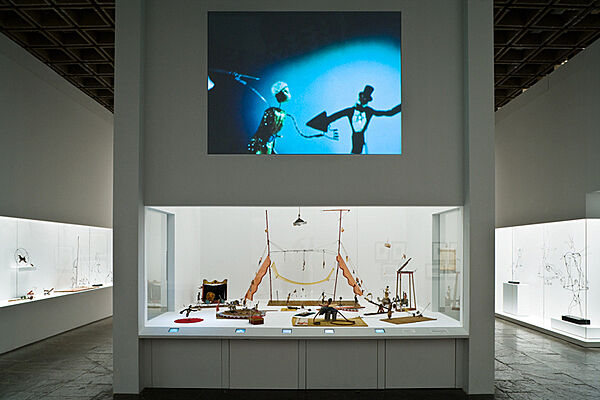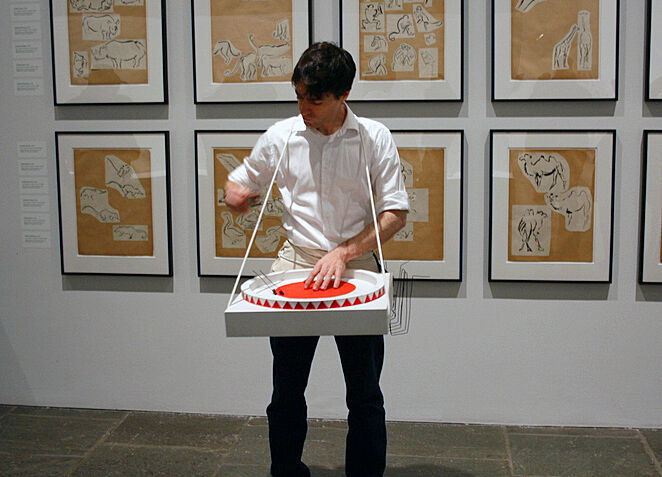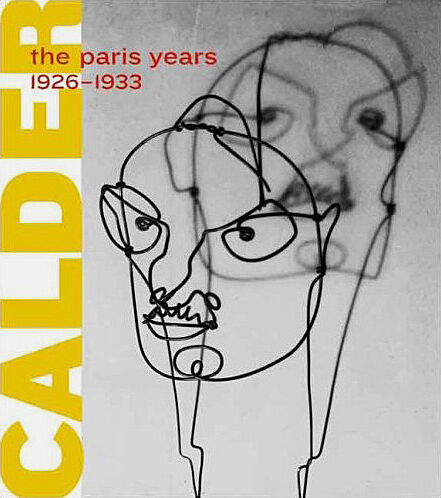Alexander Calder: The Paris Years, 1926–1933
Oct 16, 2008–Feb 15, 2009
Alexander Calder: The Paris Years, 1926–1933
When Alexander "Sandy" Calder (1898–1976) arrived in Paris in 1926, he aspired to be a painter; when he left in 1933, he had evolved into the artist we know today: an international figure and defining force in twentieth-century sculpture. In these seven years Calder's fluid, animating drawn line transformed from two dimensions to three, from ink and paint to wire, and his radical innovations included open form wire caricature portraits, a bestiary of wire animals, his beloved and critically important miniature Circus(1926–31), abstract and figurative sculptures, and his paradigm-shifting "mobiles."
The Whitney has the largest body of work by Alexander Calder in any museum and is proud to be the exclusive American venue for this landmark exhibition, co-organized with the Centre Pompidou.
Sponsored by CIT.
The exhibition and catalogue are made possible through a generous grant from the Terra Foundation for American Art.
Additional support is provided by The Brown Foundation, Inc., Donna and Benjamin M. Rosen, Faith and Philip Geier, The Florence Gould Foundation, The Jon and Mary Shirley Foundation, The Lipman Family Foundation, Julie and William Obering, Dathel and Tommy Coleman, and The Philip A. and Lynn Straus Foundation.
Opening events are sponsored by Sotheby's.
Publication
Alexander Calder: The Paris Years, 1926-1933
By Joan Simon and Brigitte Leal
A team of international scholars discusses Calder’s many innovations of this period, chief among them his abstract, motorized, and mobile works. They analyze the extended cast of Calder’s animated Circus, made in Paris between 1926 and 1931, and include previously unpublished photographs by Brassaï and Kertesz of Calder and this beloved performative sculpture. The essays critically explore the intellectual, cultural, and artistic milieu of Paris in the late 1920s and early 1930s and the contexts of Calder’s friendships with Miró, Mondrian, Duchamp, and Man Ray, among others. What emerges in this fascinating book is a nuanced and detailed understanding of how Calder’s distinctive career first took flight.
This catalogue is no longer available at the Museum Shop.
In the News
"Few exhibitions have focused so intently on one artist’s child within."
--The New York Times
Slideshow: "Calder at the Whitney"
--The New York Times
"You'll smile through the whole exhibition"
--Christian Science Monitor
"one of the year’s most appealing catalogs."
--The New York Times Book Review
"Happily, adults are just as likely to be entertained and enthralled by this kid-friendly show"
--International Herald Tribune
"brings the young Calder and the giddy ferment of his artistic circle to life."
--The New York Times
"So many people have said that seeing _Calder's Circus_ triggered their love of art and museums."
--Time Out New York Kids



